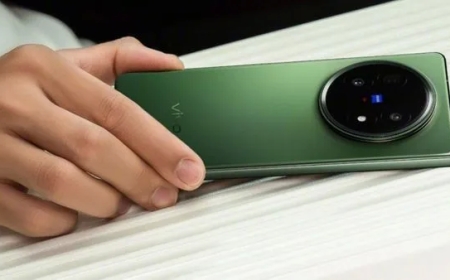Why AI Features in Smartphones Are Falling Short
AI in smartphones falls short as users find features overhyped, complex, and underutilized, highlighting a gap in practical adoption.

Smartphone manufacturers like Apple and Samsung have been promoting AI as the future of mobile technology. From advanced photo editing to personalized recommendations, these features are designed to simplify and enhance daily tasks. However, recent surveys suggest a surprising trend: many users are not impressed by these AI capabilities. Some even find them unnecessary or too complex. Here's an in-depth look at why AI integration in smartphones isn’t resonating as expected.
1. Overhyped Marketing vs. Reality
Companies have marketed AI as revolutionary, but for many users, the actual experience falls short of these lofty promises. Features often seem exaggerated or irrelevant.
2. Lack of Awareness Among Users
Many smartphone owners are unaware of the AI features in their devices. They continue to use phones traditionally, missing out on advanced tools like intelligent photo sorting or AI-driven text suggestions.
3. Complexity of AI Features
Some users find AI-powered tools too complicated. For example, features like virtual assistants or smart app suggestions often confuse users instead of helping them.
4. Limited Everyday Use Cases
While AI can perform incredible tasks, many features don’t align with the practical needs of users. Simple tasks like messaging and calls remain the most common uses for smartphones.
5. Privacy Concerns
AI features often require data collection to function effectively. This has led to growing concerns among users about privacy and data security, making them hesitant to embrace these tools.
6. Battery and Performance Impact
AI-powered features can drain battery life and affect device performance, leading some users to disable them entirely to preserve their phone’s functionality.
7. Poor Customization Options
AI tools often lack personalization. A one-size-fits-all approach leaves users feeling disconnected, as the features don’t adapt well to individual preferences.
8. Competition with Third-Party Apps
Users often prefer third-party apps over built-in AI features. Popular apps provide specialized services, outperforming the AI tools offered by smartphone manufacturers.
9. Resistance to Change
Many users resist new technologies, sticking to familiar habits. This reluctance to adapt makes it harder for AI features to gain traction among mainstream users.
10. Unrealized Potential
Despite their drawbacks, AI features hold immense potential. With better implementation and user education, these tools could eventually become indispensable.
Conclusion
AI in smartphones may have a long way to go before winning over users. While the technology is promising, its real-world application hasn’t lived up to expectations. To bridge the gap, manufacturers must focus on creating intuitive, practical, and privacy-conscious features that genuinely add value to users' lives.




























